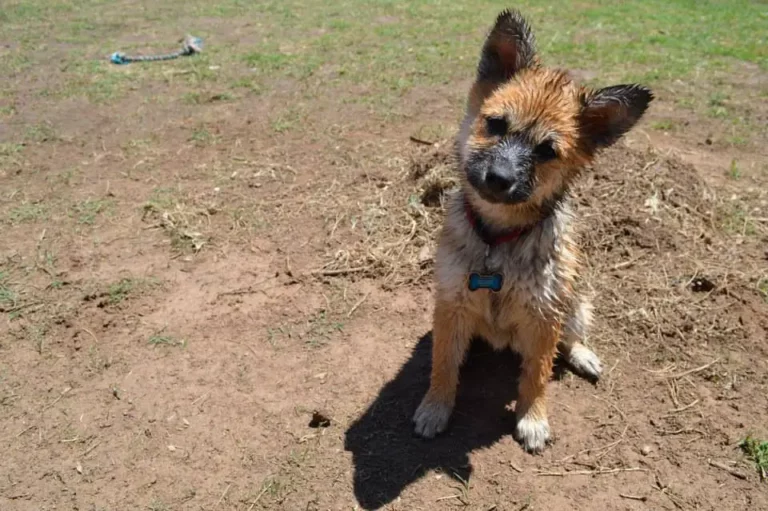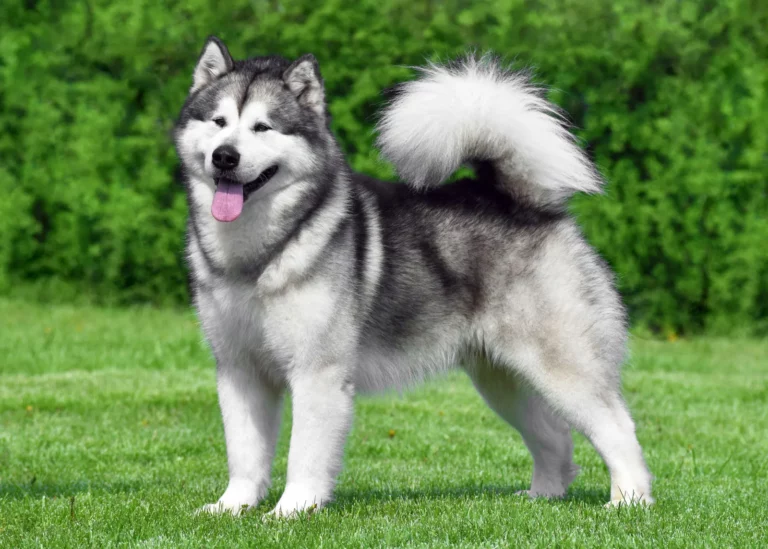How to Take Care of Newborn French Bulldog Puppies?
Bringing a newborn French Bulldog puppy into your life is a journey of joy, responsibility, and unparalleled bonding.
How to take care of newborn French Bulldog puppies isn’t just about attending to their physical needs but also fostering an environment where their tiny paws take confident steps toward becoming well-adjusted adults.
From their first feed to their early developmental milestones, each moment is a testament to the beautiful relationship between humans and their canine companions.
In this guide, we’ll explore the nuances of ensuring that your little Frenchie gets the best start in life, encompassing everything from feeding schedules to monitoring their health and early socialization.
Embrace the joy of raising tomorrow’s companions, understanding each whimper and tail-wag as you become their pillar of support.
Key Takeaways:
- The first 8 weeks of a French Bulldog puppy’s life are critical.
- A regulated and warm environment is essential.
- Puppies rely solely on their mother’s milk for the first few weeks.
- Frequent health checks can prevent potential issues.
- Early socialization and tactile stimulation benefit overall development.
Short Answer: Taking care of newborn French Bulldog puppies involves providing a warm and safe environment, ensuring proper nutrition, monitoring their health, and assisting with their early developmental needs.
The First Feed: What, When, and How
What to Feed Newborn French Bulldog Puppies
When it comes to the nutrition of newborn French Bulldog puppies, the gold standard remains the mother’s milk. This natural source is rich in essential nutrients, and antibodies, and provides the perfect balance to support their rapid growth and immune development.
However, in cases where the mother can’t produce enough milk or if there are complications, a high-quality puppy milk replacer can serve as a substitute. It’s crucial to ensure that the replacer is specifically designed for puppies, as cow’s milk or other alternatives can lead to digestive issues.
French Bulldog Newborn Feeding Schedule
Newborn French Bulldogs, like most puppies, require frequent feedings to support their growth. During their first week of life, these little pups should be nursing approximately every two hours.
As they grow, the duration between feedings can be gradually increased. By the third week, the frequency can be reduced to every four hours. It’s essential to keep a close eye on the puppies during feeding times, ensuring they are latching properly and getting an equal share.
No products found.
How Long Should Newborn Frenchies Feed For
Each feeding session’s duration depends largely on the puppy. Typically, a session lasts until the puppy’s belly is round and full, which usually takes about 15-20 minutes. It’s essential to ensure that the puppies do not overfeed, leading to digestive issues.
On the other hand, underfeeding can hinder their growth and weaken their immune systems. Monitoring and adjusting based on each puppy’s needs is key.
Bottle Feeding French Bulldog Puppies
There may be instances when bottle feeding becomes necessary, especially if the mother isn’t available or isn’t producing sufficient milk. When bottle feeding, it’s crucial to use a bottle designed for puppies, ensuring the milk flows at a comfortable rate.
Warm the milk replacer to body temperature, and hold the puppy in a natural, belly-down position. Introduce the nipple to the puppy, allowing them to latch and suckle.
After each feeding, gently burping the puppy helps release any trapped air, reducing the risk of bloating. Remember, cleanliness is vital, so always sterilize the bottle and nipple before each use.

Growth and Health Monitoring: Keeping Them on Track
Newborn French Bulldog Weight Table
Monitoring the weight of a newborn French Bulldog is a crucial indicator of its overall health and development. Consistent weight gain signifies that the puppy is feeding well and absorbing the essential nutrients. Below is a general weight table for newborn French Bulldogs:
| FRENCHIES AGE | AVERAGE WEIGHT |
|---|---|
| 1 week | 1.2 – 2.2 pounds (0.5 – 1 kg) |
| 4 weeks | 2 – 4.2 pounds (0.9 – 1.9 kg) |
| 8 weeks | 5 – 6.9 pounds (2.2 – 3.1 kg) |
| 3 months | 6.9 – 9 pounds (3.1 – 4 kg) |
| 4 months | 9 -12 pounds (4 – 5.4 kg) |
| 4.5 months | 12 – 15 pounds (5.4 – 6.8 kg) |
| 5.5 months | 15 – 16 pounds (6.8 – 7.2 kg) |
| 6.5 months | 16 – 18 pounds (7.2 – 8.1 kg) |
| 19.5 months | 17 – 24 pounds (7.7 – 10.8 kg) |
It’s essential to note that individual puppies might fall slightly outside of these ranges and still be perfectly healthy. However, any sudden weight loss or failure to gain weight should be addressed promptly.
Common Newborn Puppy Concerns
With their delicate systems, newborn French Bulldog puppies can sometimes face health challenges:
- Dehydration: This can manifest as a sunken soft spot on the puppy’s skull, dry gums, or lethargy. Ensuring regular feedings can help combat this.
- Hypothermia: Newborn puppies cannot regulate their body temperature efficiently. A warm environment, free from drafts, is essential.
- Feeding Difficulties: If a puppy is consistently pushing away from the mother or bottle or showing signs of distress during feeding, there may be underlying issues.
- Congenital Issues: These are birth defects, which can sometimes be detected early on. Regular check-ups can help identify and address these.
Regular Health Checks
Consistent health monitoring goes beyond just weight checks. Regularly examining your French Bulldog puppy can help in early detection of potential issues:
- Eyes and Ears: By the end of the second week, puppies should start to open their eyes and ears. Ensure they are clear and free from discharge.
- Mouth: Gums should be pink and moist. As they grow, monitor for any signs of misaligned teeth.
- Movement: Over time, puppies should show increased mobility and strength. Any signs of limping or discomfort should be addressed.
- Respiratory and Heart Rate: A puppy’s breathing and heart rate should be steady. Any signs of distress or persistent fast or slow rates can indicate underlying issues.
Routine veterinary check-ups, especially during the first few months, are invaluable. They provide professional insights into the puppy’s development and ensure they are on the right track health-wise.
No products found.
Setting the Stage: Preparing for Their Arrival and Development
The Whelping Box: Their First Home
A newborn French Bulldog’s first home, the whelping box, is more than just a space; it’s an environment designed to provide safety, warmth, and comfort during their initial days. Constructed to be spacious yet cozy, the whelping box should be made of easy-to-clean materials to maintain hygiene.
Its walls should be high enough to prevent adventurous pups from wandering off but low enough for the mother to move in and out with ease. Place the box in a quiet, draft-free location, ensuring that the puppies are shielded from excessive noise or disturbances.
The box’s bedding should be soft, absorbent, and changed regularly to keep it dry and clean.
Essential Supplies for Newborn Care
Being prepared with the right supplies can make the process of caring for newborn French Bulldogs smoother:
- Heating Solutions: Newborn puppies can’t regulate their body temperature. Heating pads, lamps, or even warm water bottles can provide the necessary warmth.
- Feeding Equipment: If the mother’s milk is insufficient, you’ll need puppy milk replacers, feeding bottles, and nipples designed specifically for puppies.
- Sanitation Supplies: Clean towels, blankets, and disinfectants are crucial to maintain a sterile environment.
- Monitoring Tools: A digital scale for daily weight checks, a thermometer, and a feeding logbook can be beneficial.
Early Development and Socialization
The first few weeks in a French Bulldog puppy’s life set the foundation for their personality and behavior as adults:
- Tactile Stimulation: Gently handling the puppies, introducing them to different textures, and even mild massages can aid their neurological development.
- Auditory and Visual Stimuli: As their eyes and ears open, softly playing varied sounds or introducing them to controlled visual stimuli can be beneficial.
- Interaction: While their primary interaction will be with their mother and siblings, introducing them to different family members in short, controlled sessions aids in building their confidence and social skills.
Remember, while early socialization is crucial, it’s also vital to ensure that these experiences are positive. Negative experiences during this phase can have long-lasting impacts on their behavior.
No products found.
FAQ: Addressing Common Concerns
How do you take care of a French Bulldog after giving birth?
After giving birth, a French Bulldog mother will need extra care and attention. Ensure she has a clean and comfortable resting place. Increase her food intake, as she will need more nutrients to produce milk for her puppies.
Keep fresh water available at all times. Monitor for any signs of postpartum complications like infections or mastitis and consult a vet if you observe any abnormalities.
How do you take care of a new French Bulldog puppy?
Caring for a new French Bulldog puppy involves ensuring they are warm, well-fed, and safe. Feed them at regular intervals, either through their mother’s milk or a suitable milk replacer if necessary. Monitor their weight and health, and introduce them to early socialization practices as they grow.
How often should I feed my newborn French Bulldog puppy?
Newborn French Bulldog puppies should be fed approximately every two hours during their initial weeks. As they grow, you can gradually extend the time between feedings.
What do newborn French Bulldog puppies eat?
Initially, newborn French Bulldog puppies should consume their mother’s milk, which provides essential nutrients and antibodies. If the mother’s milk is unavailable or insufficient, a high-quality puppy milk replacer can be used.
When do French Bulldog puppies open their eyes?
Most French Bulldog puppies begin to open their eyes between 10 to 14 days after birth.
When can they start going outside?
French Bulldog puppies can start exploring the outdoors after receiving their first set of vaccinations, which is typically around the 8-week mark. However, short supervised visits before this can be beneficial for their development.
How can you tell if a puppy is not thriving?
Signs that a puppy may not be thriving include consistent weight loss, persistent crying, reluctance or inability to nurse, and reduced activity levels compared to their siblings. If any of these signs are observed, immediate consultation with a vet is recommended.
Concluding Thoughts and Additional Resources
Raising a newborn French Bulldog puppy, with its inherent challenges and delights, is one of the most rewarding experiences for a pet owner. The bond forged in these early days between the pup and the caregiver is profound and long-lasting.
While it might sometimes feel overwhelming given the responsibility of nurturing a new life, the joys of watching a puppy grow, learn and develop make every moment worth it.
It’s essential to remember that, like human babies, each puppy is unique. They grow and develop at their own pace, displaying individual personalities and quirks. While guides and resources, such as this one, provide a robust framework, always be prepared to adapt and pivot based on your puppy’s specific needs.
For those eager to delve deeper into the intricacies of puppy care or address specific challenges, a plethora of resources are available:
- Books: There are numerous books dedicated to puppy care, ranging from general guides to breed-specific insights. One recommended read is “The Puppy Primer” by Patricia B. McConnell.
- Online Forums: Websites like The French Bulldog Club of America offer valuable insights, forums, and community support.
- Veterinarians and Puppy Classes: Never underestimate the value of expert advice. Regular vet check-ups and enrolling in reputable puppy classes can be instrumental in ensuring your pup’s well-rounded development.
Remember, as you embark on this beautiful journey of raising a French Bulldog puppy, you’re not alone. Embrace the learning, cherish every moment, and know that the love and care you provide will shape a loyal, loving companion for years to come.






